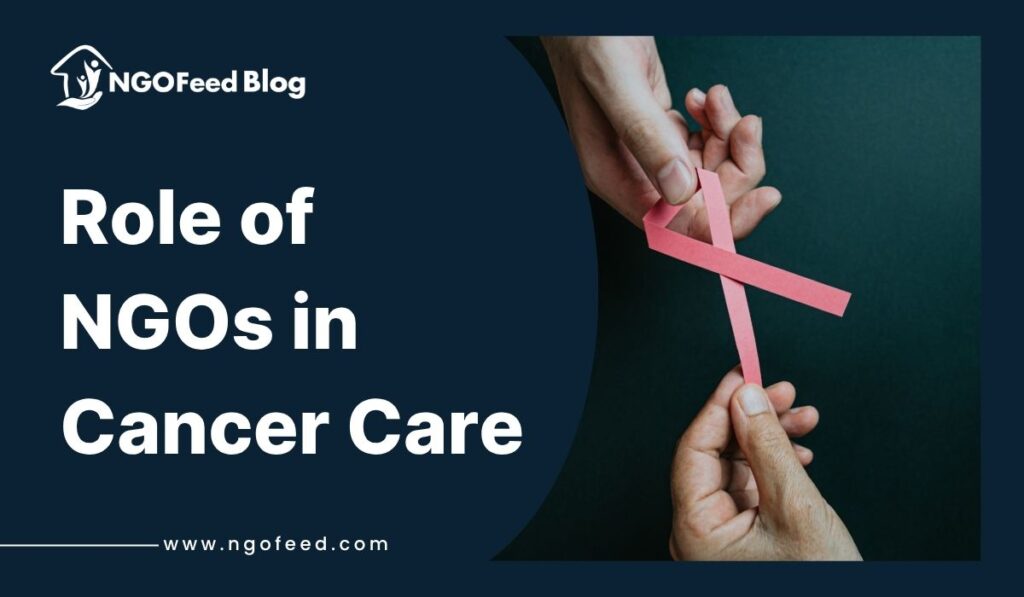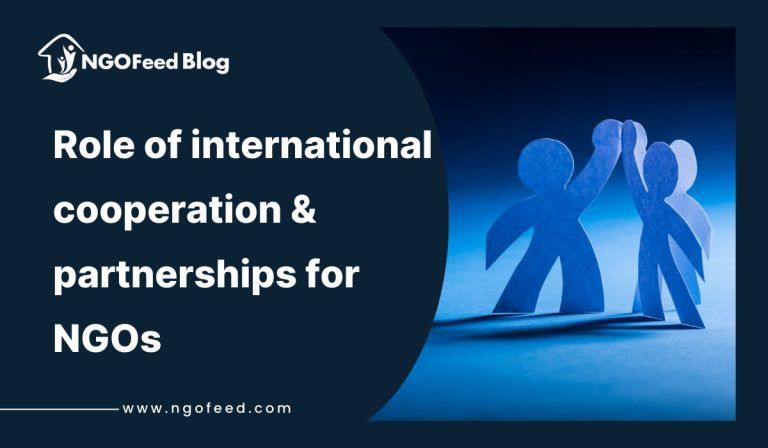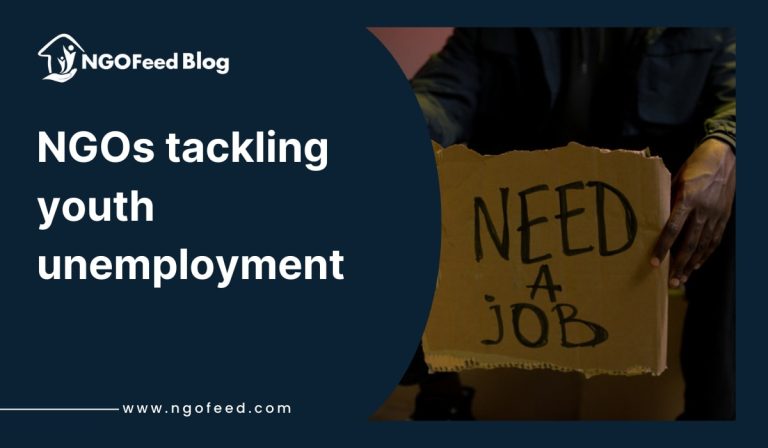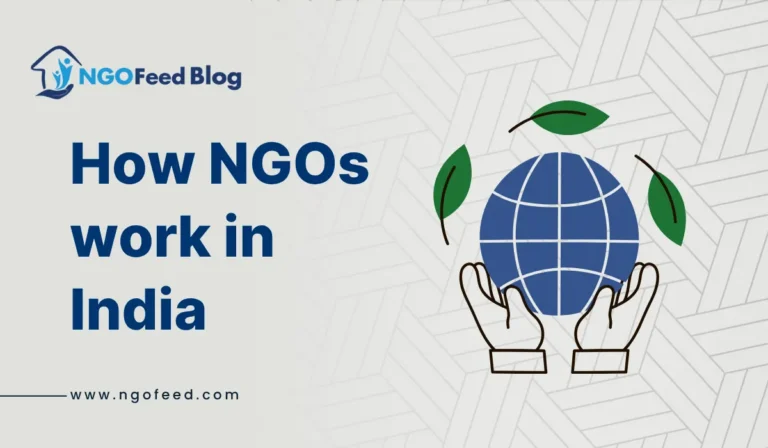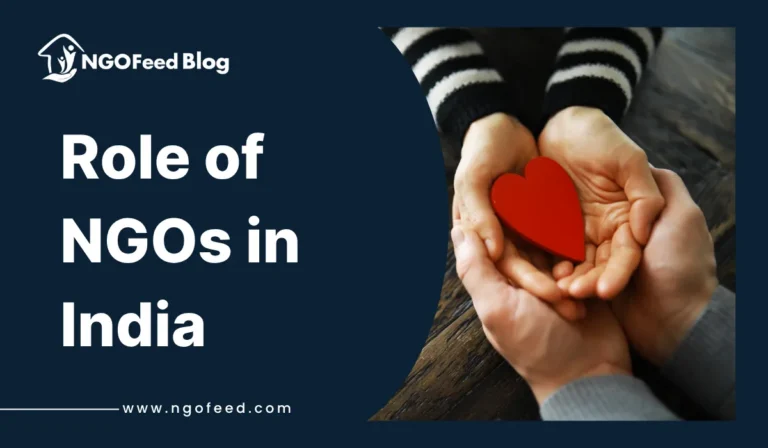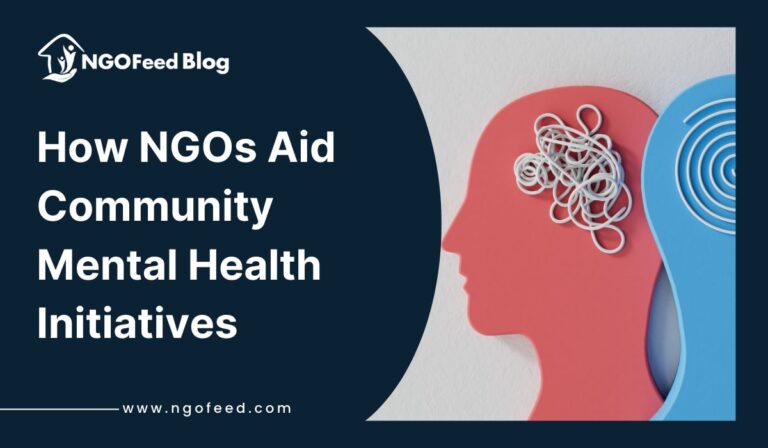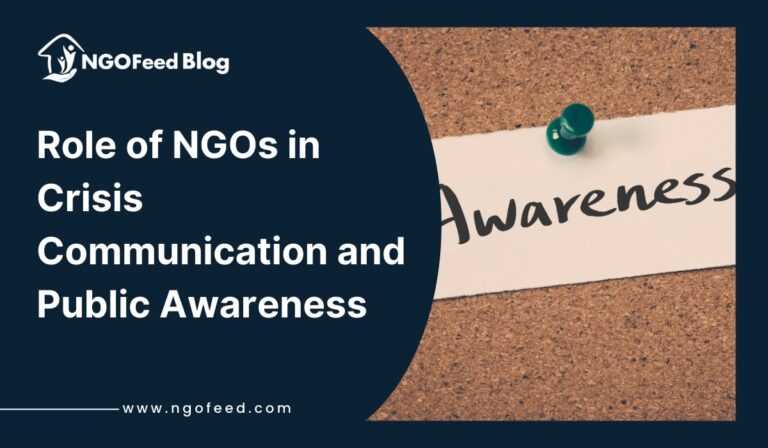Role of NGOs in Cancer Care: Cancer is a leading killer around the globe, placing a heavy toll on people, their families and the healthcare system. Access to on-time diagnosis, inexpensive care and psychological services is a big problem in many nations that do not have strong healthcare infrastructure or where there are great economic differences. In this situation, NGOs have become very important partners in the fight against cancer, supporting governments and making up for important gaps in care and education.
These Nonprofit organisations work in cancer care by helping with both prevention, early detection, supporting treatment, advocating for patients and rehabilitation. Many of them work in local communities, helping people in underserved regions receive cancer education and screening. They arrange events to clear up misinformation, encourage openness and help people receive treatment early, making it easier to overcome the condition.
Also Read: Role of UNHRC in Safeguarding Human Rights
In addition, NGOs give cancer patients help with their finances, counselling, palliative care and treatment. A number of NGOs set up cancer hospitals, use mobile screening units or join hands with healthcare organisations to provide clinics or procedures for reduced or no charges. They also play a big part in encouraging policy changes such as better support for healthcare services, coverage and what patients can expect.
Thanks to their involvement in the community, fresh methods of outreach and sympathetic work, NGOs link people with cancer care services to those who are accessible. People’s focus becomes very important in countries where public health resources are overstretched.
The article looks at how NGOs are essential in cancer care and points out their key roles, problems faced and possible solutions for ensuring fair and effective cancer support for all.
Table of Contents
How NGOs Help in Cancer Awareness and Prevention
When public health education is limited, NGOs step in to help raise cancer awareness and prevent it. One of the best things people can do is be informed early about cancer, and NGOs use community activities to help share important information.
Also Read: Role of NGOs in Mental Health
Spreading information about issues through different kinds of campaigns
Many NGOs arrange events to inform people about what increases their risk of cancer, early signals to watch for and why regular check-ups matter. They commonly reach schools, colleges, offices and parts of rural areas by using local languages and material that matches their culture.
Helping People Make Better Lifestyle Habits
Many NGOs work to lower cancer risks by urging people to make healthy lifestyle choices such as giving up tobacco, not drinking too much alcohol, enhancing their diet and getting enough exercise. There are NGOs that join forces with youth and women’s organizations to share these messages and encourage lasting improvements in behaviour.
Experiencing Global Health Days
NGOs support health-related days every year by taking part in World Cancer Day, Breast Cancer Awareness Month and No Tobacco Day. Their purpose is to build support for the cause, hold screenings and join efforts with the media to ensure more people hear their messages.
Also Read: Role of WHO in Healthcare
Offering Education for People at High Risk
Some NGOs focus their efforts on people in areas where tobacco is used widely or on women from poorer areas. With this targeted effort, important details are made available to the most vulnerable populations.
Encouraging people to avoid risks and seek early help for cancer, NGOs are working hard to keep this disease at bay.
Free Cancer Screening and Early Detection by NGOs in Cancer Care
If cancer is found early, survival chances often increase, but few people in many parts of the world can access the screening on time—particularly those in rural and disadvantaged areas. NGOs help to bridge this gap by arranging cancer screening camps for free or at a low price, as well as encouraging early tests.
Testing Centers for Mobile Screening in Remote Spots
Across the country, various NGOs move medical services and diagnostics to remote villages and semi-urban locations by deploying mobile medical trusts. These programs often check for common forms of cancer in the breast, cervix and mouth since they are the leading cancers in many developing areas. Going directly to people’s homes via NGOs helps solve issues created by travel problems, high cost and limited knowledge.
Also Read: NGOs in Cancer Care
Working with Hospitals and Laboratories
NGOs regularly join with government hospitals, private clinics and laboratory centers to make screening for cancer affordable or free for people. By partnering, NGOs can reach out to more people and properly support those with signs of cancer.
Deal mostly with high-risk groups.
Usually, programs for breast, cervical and oral cancers are aimed at women over 40 and tobacco smokers. With these focused programs, unusual behaviors can be detected soon after they develop, easing treatment and saving costs.
Supporting the Skills of Local Health Workers
Certain NGOs equip local health volunteers and staff to quickly check patients and advise them to attend further tests. It helps the local healthcare system grow and encourages regular healthcare appointments.
By organizing regular screening and prompt discovery of cancers, NGOs help save lives and give patients faster care.
Also Read: Role of NGOs in HIV and AIDS Awareness and Prevention
NGO Support for Cancer Treatment and Financial Aid
It can be very hard for those with little money to pay for cancer treatment. Many families have to sell their assets or give up cancer treatment because the high cost of care becomes too difficult for them. At times like these, NGOs make a big difference by handing out crucial financial and practical help.
Payment Assistance for Medical Care
A lot of NGOs offer direct support to cancer patients by paying for their medical fees in public and private hospitals. Such support can include money for surgeries, chemotherapy, radiotherapy, tests before and after treatment and medicines you need after receiving treatment. NGOs assist families by helping them get access to government benefits or insurance, so they spend less money themselves.
Doctors use both free medications and equipment in their practice.
Several NGOs partner with pharmaceutical companies and distributors to supply essential medications for cancer patients at highly reduced rates or no cost at all. Some volunteer organisations arrange for the supply of items such as wheelchairs, beds and nutrition tools to support those in treatment.
Assistance with finding a place to live and ways to travel
NGOs sometimes help patients from far distances by offering housing close to cancer hospitals. They take away some of the financial stress for families who move away for their children to receive lengthy medical care.
Crowdfunding over the internet and holding Donation Drives
NGO workers turn to social media and online sites to launch fundraising campaigns for people with urgent health needs. As a result of these efforts, patients receive support, and more people learn about both the patient’s health and the wider cancer care challenges.
Because public health measures cannot meet everyone’s needs, NGOs help thousands of cancer patients facing financial problems by restoring their hope, dignity and strength.
Emotional, Psychological, and Palliative Care by NGOs
Cancer causes both physical and emotional harm to patients and those around them. In addition to medical support, people also need mental strength and excellent care at the end of their lives. NGOs have become involved to ensure that cancer patients continue to get care that is both kind and covers all their needs.
Support from Counselling and Mental Health
People who learn they have cancer often feel anxious, depressed, afraid and emotionally hurt. Several NGOs provide counselling for both cancer patients and their carers. If you feel uncomfortable opening up to people around you, trained staff and support groups can give you a comfortable space.
Also Read: Role of NGOs in Sustainable Agriculture
Being involved in groups of people with similar challenges
For some NGOs, one way to help is by organizing support groups that allow cancer survivors, patients and their family members to interact and support one another. They make people feel part of a group, remove a sense of loneliness and boost both hope and motivation during their treatment process.
Services in Palliative and Hospice Care
Palliative care is very important for those with advanced cancer to ease pain and ensure they live well. Care organizations that focus on palliative care provide services in the home, as well as in hospices and give training to caregivers. Hospice workers provide comfort, care and pain management, so patients have a peaceful and comfortable last period of life.
Help and Information for Caregivers
A cancer diagnosis can have Far-reaching consequences for whole families, and those caring for patients may become very stressed and tired. They organise training programs for caregivers, offer temporary care services and give access to helplines to those who look after patients daily.
Through meeting the emotional and supportive needs of patients, NGOs support the human part of healthcare by giving comfort, honour and hope.
Also Read: Role of UNHRC in India
Top Cancer NGOs in India and Their Impact
A number of dedicated NGOs in India have helped a lot in cancer care, from informing the public to prevention, treatment, giving support and rehabilitation. These organizations have worked relentlessly and created helpful programs that have improved the lives of many people.
1. Indian Cancer Society is based in New Delhi.
ICS was set up in 1951 and is now known as one of India’s oldest and most trusted cancer NGOs. People can get cancer screening at no cost, receive help with rehabilitation and access money for treatment. ICS offers country-wide programs to inform many people and supports survivors though groups.
2. CanSupport
CanSupport plays a key role in providing palliative care for patients at home. Based in North India, the organization’s goal is to give medical, psychological and emotional help to terminally ill cancer patients and their families—without charging anything.
3. The Cancer Patients Aid Association
In Mumbai, CPAA gives complete care to vulnerable cancer patients, including support with money, lodging, counseling and finding jobs. They participate in anti-tobacco actions and give educational seminars to stop cancer.
Also Read: Role of NGOs in Sustainable Development
4. YouWeCan Foundation
After defeating cancer, cricketer Yuvraj Singh established YouWeCan to help raise awareness, catch cancer early and help cancer patients. It covers health costs for unprivileged children and women and works with youth to change harmful habits through campaigns.
5. Sanjeevani Life Beyond Cancer
The NGO provides cancer patients with help through wellness resources, counseling about healthy eating, yoga and support from people who have survived cancer. It works with hospitals to support patients in treatment and full recovery.
Also Read: Role of NGOs in Biotechnology
By filling gaps in public health, these NGOs also encourage hope, dignity and encouragement for people fighting cancer. The good work they do highlights the real role of civil society in providing accessible and kind cancer care.

